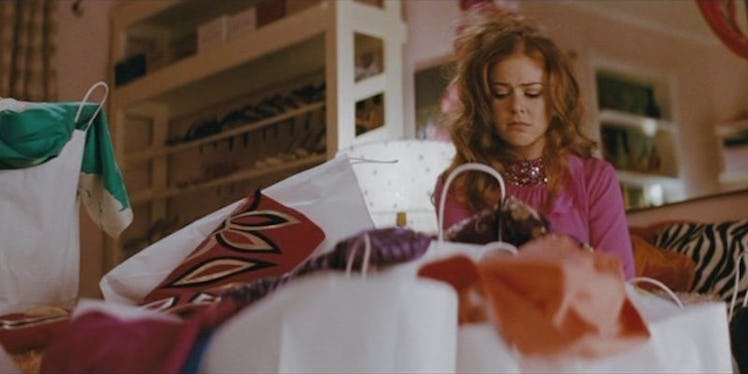
How To Take Advantage Of Holiday Deals Without Buying Stuff You Don't Need
The holiday season is finally here, reminding consumers everywhere it's time to buy, buy, buy.
With earlier access to discounts and deals, free online shipping and catchy advertisements, the holiday spending hype started a few days before Thanksgiving and will go well into the days after Christmas, extending the period of frantic shopping even more.
I know it's a strangely wonderful feeling to bargain shop and find squeal-worthy deals as they come around. Even I can't deny that.
But, that feeling is even better when you purchase something you know is absolutely necessary and are more conscious about your consumption.
It's fairly simple to make a transaction happen. You go to the store or visit a website and swipe your card or enter the numbers to complete the order.
Before you know it, you've made purchases fueled by materialistic impulses on credit cards that are forcing you deeper into debt.
So, how can we avoid impulse shopping during this crucial time that has the power to make or break our relationship with conscious consumption?
Here are four ways you can still take advantage of deals without buying stuff you don't need:
1. Think before you buy.
Common sense, right?
But often, we don't think before we buy something. This leaves us surrounded by clutter and piles and piles of things we've accumulated along the way.
These are the two questions I ask myself before making a purchase: Do I love it? Why do I need it?
These two inquiries alone have filtered out countless unnecessary purchases.
It also helps to note whether the new purchase is replacing an existing item already in possession, or if it's merely supplementing items already owned.
Either way, do you love it, and why do you need it?
2. Buy better, and buy less.
I didn't always believe quality was better than quantity. I participated in the whirlwind of fast fashion before I knew what fast fashion even was.
My fast shopping resulted in fast spending.
Now that I know better, I always strive to make smarter purchases. Buying better eases me into buying less because I'm happier with the things I own.
Classic pieces are timeless and versatile, and quality pieces often have a longer lifespan.
3. Buy responsibly, ethically, locally and secondhand.
One opinion about buying ethically or locally is that it's expensive. And the common misconception about secondhand shopping is that it's somewhat "dirty."
But, if we gather the facts and do independent research instead of following the opinions of others, we can understand the difference between local and mass production.
We have a lot of purchasing power, and it should be used to the greatest benefit of not only ourselves, but also of those around us.
Let's face it: Buying cheap clothing and products supports cheap labor, among other less desirable situations.
Are we really down with that? Support your local businesses and ethical labor practices by avoiding fast fashion companies.
4. Appreciate what you have.
Being conscious brings awareness to our actions and the impact of our actions. Appreciating what we have brings awareness to just that: what we have.
As I mentioned earlier, it's fairly easy to make a transaction happen. However, it's not nearly as easy to make a transaction last, which is why we must love it in order to care for it.
While these few ideas are not all-encompassing, and there are plenty more ways to consciously consume, they are a guide to improving your decision-making skills and encouraging you to think beyond your own needs and into the real cost of consumerism.
Understanding the circular effects of consumerism is the first step to making better decisions.
With the holiday season upon us, there is no better time than now to reflect on the evolution of consumerism and how our participation enables its unceasing growth in the world today.